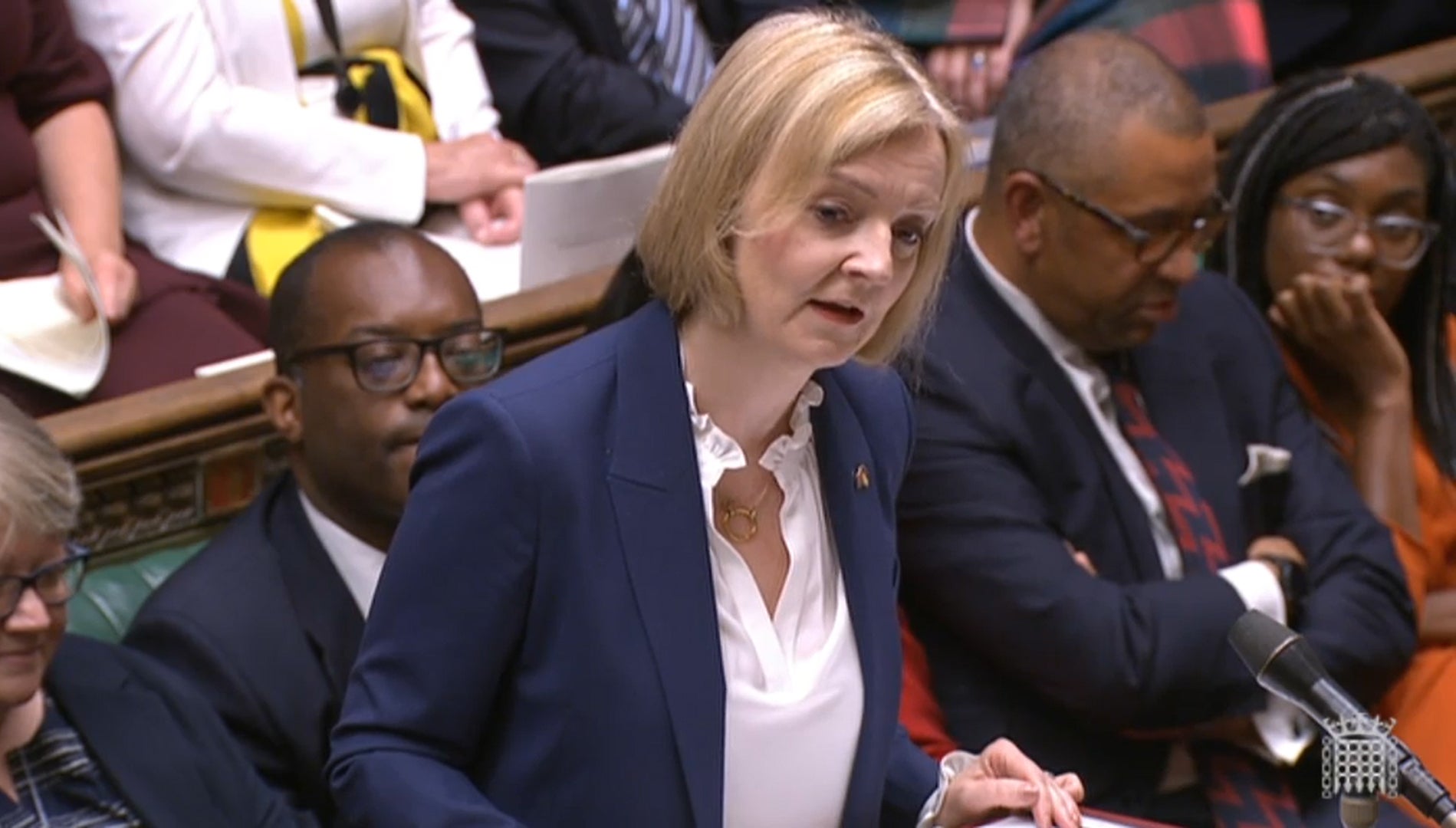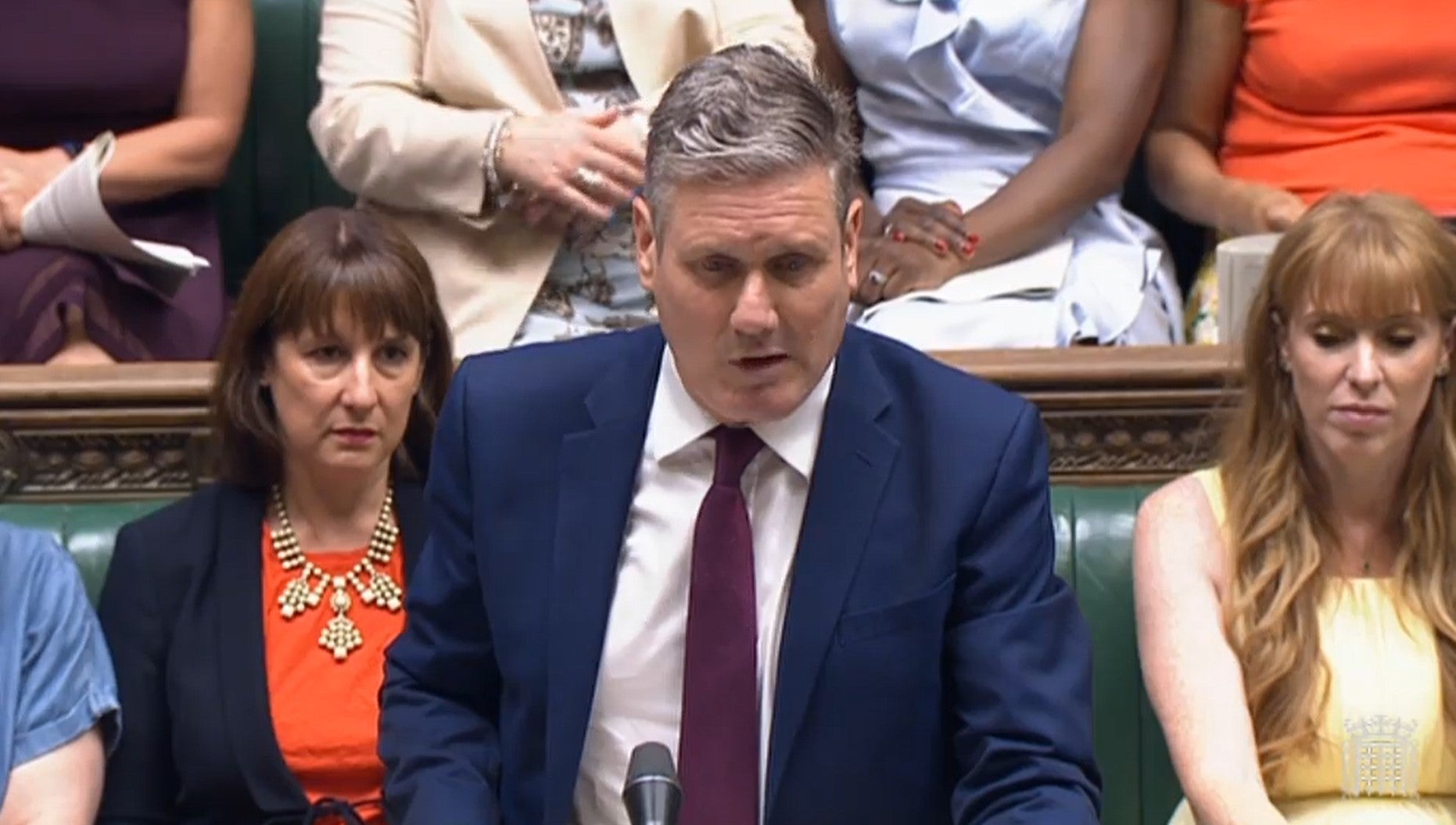Warning 1.3 million Britons will be pushed into poverty even with energy bill freeze
Average household bill set to rise to £3,549 per year from 1 October
A further 1.3 million Britons will be pushed into poverty next year even if energy bills are frozen at their current levels, a think tank has warned.
The Legatum Institute (LI), which focuses on social and economic policy, forecasts that the number of people in poverty will rise from 13.9 million in 2019/20 to 15.2 million in 2022/23 even if the freeze is implemented.
The average yearly household bill for gas and electricity is set to rise from its current level of £1,971 to £3,549 on 1 October when the new price cap comes into effect.

Liz Truss, the new prime minister, is considering a range of options to help those struggling to pay their soaring bills, driven by Russia’s war with Ukraine.
Are you facing financial hardship due to the cost of living crisis? If so email matt.mathers@independent.co.uk
One measure being weighed up by Ms Truss is to freeze the energy price cap.
She confirmed at Prime Minister’s Questions she would make an announcement on Thursday and is expected to keep bills at around £2,500 - part of a package likely costing tens of billions of pounds.
In its Social Commission report, part of a series of papers on “priorities for government”, the LI warned that 1.7 million more people will be in “deep poverty” should bills rise.
This would reflect an increase of over 30 per cent on “deep” poverty levels when compared with 2019/20, according to the think tank.
If the energy price cap is frozen at summer 2022 levels, 1.45 million people would be shielded from poverty and 750,000 people will be shielded from deep poverty, it adds.

However, the number of people in poverty will still be over a million greater than pre-pandemic levels if there is no further intervention, the think tank says.
Speaking at her first outing in the House of Commons on Wednesday, Ms Truss confirmed she would act on rising bills but would not be drawn on further detail.
She rejected the idea of using an additional windfall tax on the bumper profits made by oil and gas giants to fund the package, reported to cost up to £150 billion.
Ms Truss told the Commons: "I will make sure that in our energy plan we will help to support businesses and people with the immediate price crisis, as well as making sure there are long-term supplies available.
"I understand that people across our country are struggling with the cost of living and they are struggling with their energy bills.
"That is why I, as prime minister, will take immediate action to help people with the cost of their energy bills and I will be making an announcement to this house on that tomorrow and giving people certainty to make sure that they are able to get through this winter and be able to have the energy supplies and be able to afford it."
In response to Labour leader Sir Keir Starmer said refusing to tax the profits made by oil and gas firms as a result of the high global prices would leave taxpayers footing the cost of the energy freeze for decades.
"The prime minister knows she has now choice but to back an energy price freeze, but it won’t be cheap and the real choice, the political choice is who is going to pay," he said.
"Is she really telling us that she is going to leave this vast excess profits on the table and make working people foot the bill for decades to come?"
Ms Truss reiterated her opposition to a levy. "I am against a windfall tax, I believe it is the wrong thing to be putting companies off investing in the United Kingdom just when we need to be growing the economy," she said.
Join our commenting forum
Join thought-provoking conversations, follow other Independent readers and see their replies
Comments





Bookmark popover
Removed from bookmarks